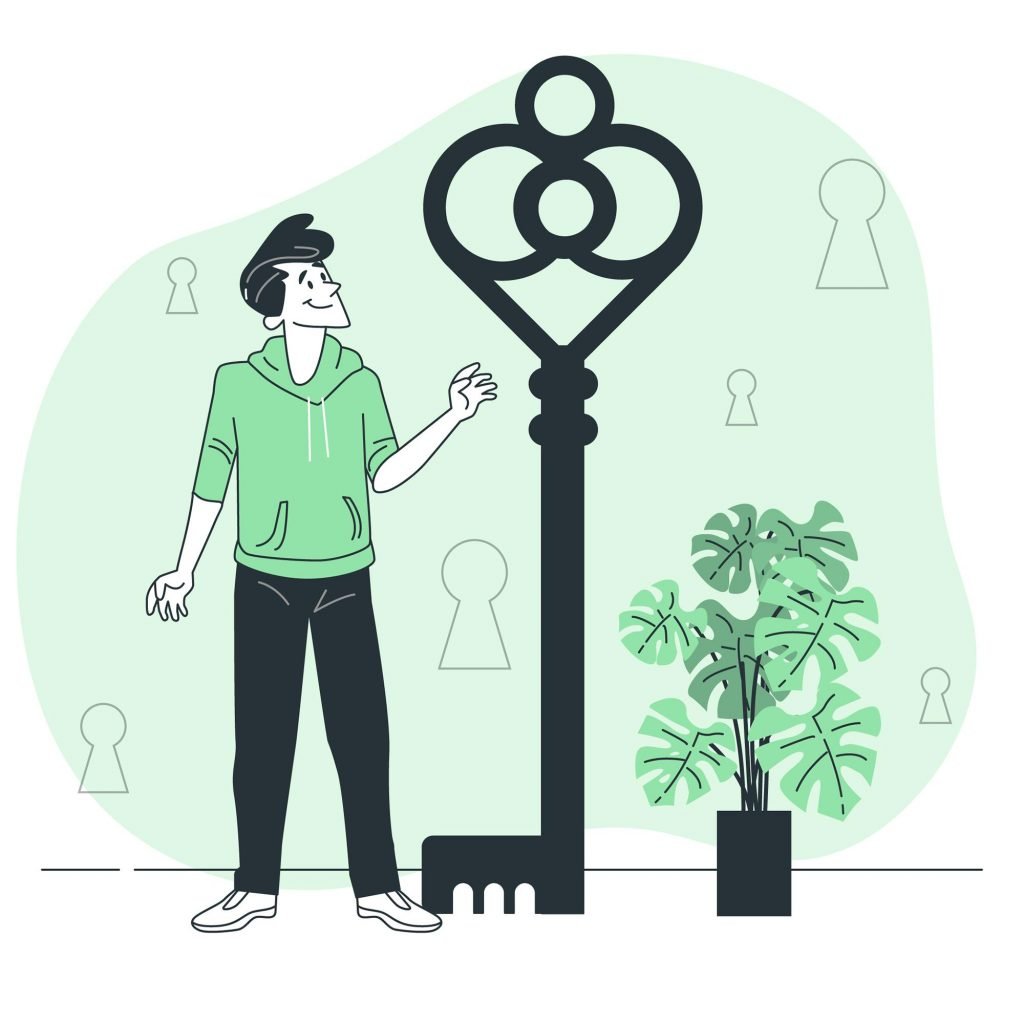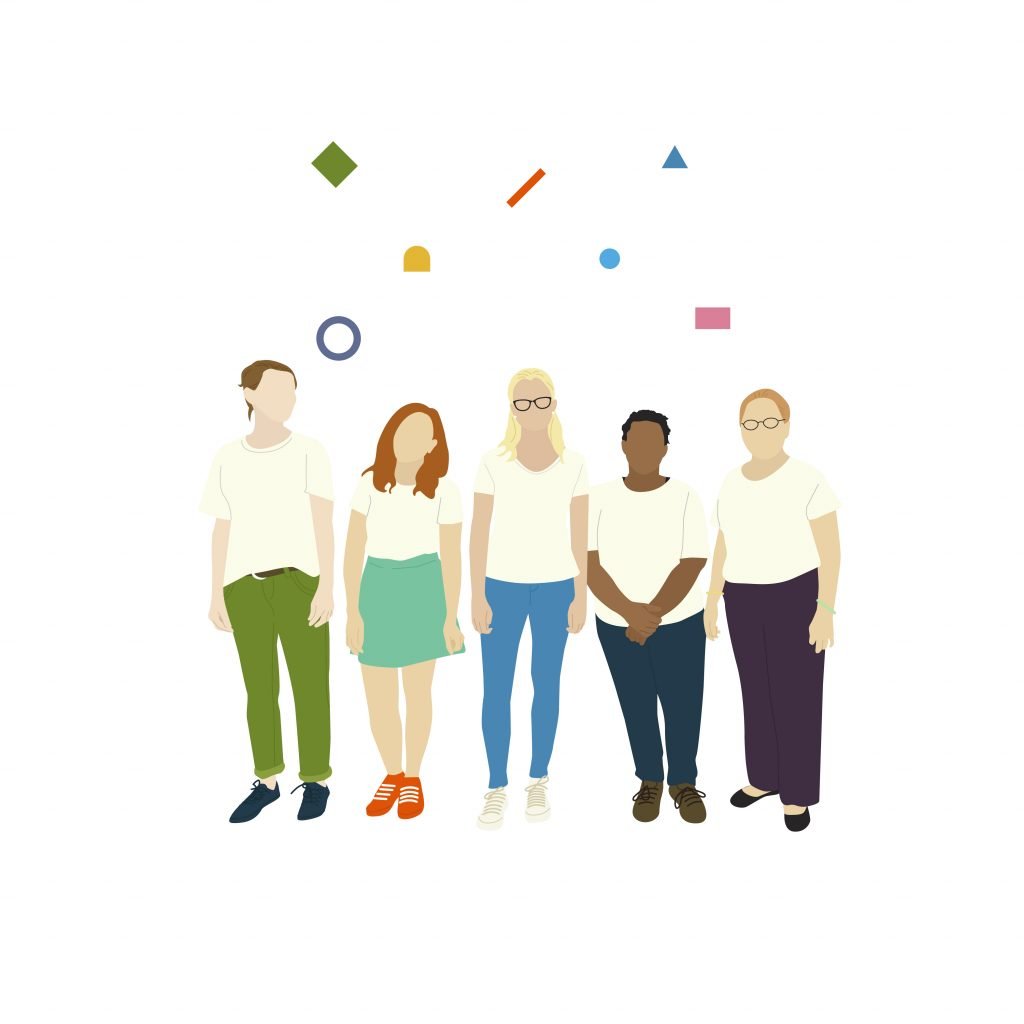Life coaching. Ever wondered what it’s all about? Have you ever asked yourself `What is a life coach‘ or ‘What does a life coach do‘?
Embark on a journey of self-discovery and transformation with the fascin͏ating ͏world of life coach͏ing. Have you ever pondered ͏the mysteries͏ of life coaching and wondered if ͏it could be the missin͏g piece in your pursuit of personal and professional fulfillment? In this exploration͏, we delve into the enchan͏ting reality of life coaching, uncovering the top secrets that might just unlock a brighter, more empowered version of yourself. Get ready to unravel the mysteries and possibilities that li͏fe coachi͏ng ͏holds for you. Let’s explore the TOP 5 THINGS you need to know about ͏life coaching and ͏wheth͏er it’s right for you.
What is life coaching?
Back in the 1980s, Thomas Leonard, first put life coaching on the map. His idea to develop coaching as a profession was met with cynicism by many. However, the benefits of coaching soon became apparent and coaching itself was acknowledged as a highly valuable discipline. Consequently, thousands of people set out on their coaching journeys.
By 1995, Leonard established the International Coaching Federation (ICF) which has become the most prominent global coaching organisation. Likewise, with the number of coaching clients rising daily, the number of practising coaches has increased.
So we know a bit about its background, but what does the term ‘life coaching‘ actually mean? The ICF defines life coaching as “partnering with clients in a thought-provoking and creative process that inspires them to maximize their personal and professional potential.”
To sum up, life coaching can range from relationship and health coaching to life skills and career coaching. A rapidly increasing number of people credit their new-found motivation and productivity to life coaching. Clients look for guidance in confidence, career change, self-worth and esteem, work-life balance, relationships, finding your purpose, health, emotional intelligence and much more.
Furthermore, it is far more common than you think. As well as ordinary folk, a lot of the most successful business leaders, entrepreneurs and CEOs in the world have hired coaches. Past coaching clients include Princess Diana, Nelson Mandela, Hugh Jackman and Serena Williams, to name a few.
Life coaching has become so popular that it is offered as a subject by many universities throughout the globe, including postgraduate and masters level courses.
What is a life coach?
There is no one specific definition of a life coach. Their service and focus can vary depending on their clients’ individual goals. But if you were to define it, it would sound something like this: A life coach is a trained professional whose job it is to help you decide what your goals are and then to create an actionable plan to surpass them.
Coaches will usually work on productivity in professional, personal or business situations. Besides, a coach can also be qualified to coach as a direct result of years of experience within an area of expertise. Many find it helpful to have a coach with knowledge of their industry to ensure a better understanding of the issues they are facing. Furthermore, life coaches can be motivational speakers, consultants, devil’s advocates that work with their clients objectively. However, the list of the roles they play extends far past that. Coaches are hired more and more frequently to help people with life/career change, personal goals and self-development. So what is a life coach? In short, a life coach is a professional who sets you on the track that leads you to your best self in work, life, and most commonly, both.
‘Life coach’ is not a protected title, however, The International Coaching Federation (ICF) has created standards for coaching by providing a certification standard for coaching diplomas. It’s always good to check if a coach has completed a course that’s credited by ICF. And of course, life coaches have stringent industry standards of professionalism, client confidentiality and ethics they must adhere to.
What happens in a life coaching session?

Coaching is a creative partnership between a coach and a client. Although sessions vary due to the client’s goals and the coach’s approach, usually a structured format is adhered to. The following is a loose chronological example of how a coach may work with you:
- Establishing a coaching relationship of transparency, honesty and often vulnerability between both parties.
- The client’s goals are established and defined.
- The coach designs a custom plan for exceeding the defined goals based on the findings of the initial session, followed by any other revelations throughout the coaching. The plan is custom to the client’s personality and objectives. The coach encourages the client to adhere to this tailored plan.
- A coach adopts their skills and expertise specifically to help their clients reach their goals.
- The coach continues to inspire and motivate the client on their journey of self-discovery and growth.
- The life coach nurtures client accountability to increase productivity.
Sessions may vary depending on the coach, the medium of communication, their methods, and how many sessions you’ve received. Above all, a coach will adjust their methods in this dynamic relationship. This allows a coach to thoroughly understand where a client is coming from and where they want to be.
Powerful questions a life coach may ask you:
- What gets you up in the morning and drives you?
- What do you want to achieve from your goals?
- When do you feel most productive?
- What negative thoughts do you have at work?
- What truly makes you happy?
Stimulating and challenging questions are often asked by the coach so that a client can see their situation from an alternative perspective. This usually is the inaugural stage that seeds motivation and incentive in the client. Most importantly, the questions asked are designed by the coach to get the client thinking outside the box and to create their answers to achieve their goals.
Each step your coach guides you on will be relevant to achieving your end goals. And you never know what other goals you might achieve along the way. It will all have a positive, domino effect on the things you do in life, in work or both.
Depending on your progress, a coach may adjust or tweak your plan for efficiency in achieving your goals. But the most important thing is that you are willing to be open and honest with yourself and your coach. Sometimes the hardest part is deciding to open up and highlight what’s not working for you. And that’s ok. We’re only human, after all.
Once a client is open and willing to make a change in their lives, a life coach can help them achieve so much more. So let’s talk about what a life coach will and won’t cover with you throughout your sessions.
Engagement Techniques
Picture this: You wake up, inspired and driven, knowing exactly what you want to achieve. That’s the magic of life coaching. Celebrities like Princess Diana and Nelson Mandela sought guidance, and now, life coaching is accessible to everyone. From postgraduate courses to online platforms, the possibilities are endless. Let’s unravel the layers of life coaching, exploring powerful questions that ignite motivation. But the real magic happens when you meet individuals who share their transformative journeys.
Find out how our users have found their life coaching sessions
Back to Work After Maternity Leave – Aine’s User Story
‘At the time that I signed up for the coaching, I was struggling to find space for myself within my schedule. I …Read More
Identifying and Managing Constraints – Leslie’s User Story
‘Too often, If things are not done over short periods of time with some intensity, there is no change or life …Read More
Keeping Focused – Mary’s User Story
‘I was looking for advice on career advice. I’m in the third year of college and I have a year left and I realised …Read More
Empathy and Connection
Life is a series of challenges and uncertainties, and sometimes, we all need a guiding hand. Life coaching is not a one-size-fits-all solution; it’s a compassionate partnership where your goals and struggles are understood. If you’re grappling with uncertainty, self-worth, or career transitions, know that you’re not alone. Life coaches empathize with your journey, offering support, expertise, and a roadmap to your best self.
What is the difference between a life coach and therapy?

There is a common misconception that life coaching and therapy are the same, but with different titles. However, they are two very different services. Yes, both services have many similarities. But, life coaching is quite a distinct service that does not administer therapy.
First of all, it is crucial to know when and why you should hire a coach or a therapist. Below, we’ll review therapy and coaching, and see what situations they are most suitable for:
What is Therapy?
Therapy is a long-term process in which a qualified healthcare professional works to diagnose and resolve a client’s problematic beliefs, behaviours, relationship issues, feelings or physical reactions.
It focuses on past traumas and issues to change self-destructive habits, repair and improve relationships or cope with painful emotions.
What is life coaching?
A coach, who is not a healthcare professional, helps a client identify obstacles and problematic behaviours and clarifies their goals. As a result, the coach creates an action plan to achieve the desired outcome.
The process takes the client’s current starting point as an acceptable neutral ground and is more action-based from that point onward.
The top differences between life coaching and therapy
| Life coaching | Therapy |
| Does not diagnose a client | Diagnoses and treats clients from a healthcare perspective |
| Identifies and describes current problematic behaviours | Analyses their client’s past as a tool for understanding present behaviours |
| Works on “how” to work toward a goal | Focuses on “why” specific behavioural patterns occur |
| Focuses on an individual’s actions and results by measuring a client’s success with milestones and goals | Helps clients examine and recognise their subconscious and unconscious mind to learn about the pattern and reasoning of their behaviours |
| Has expert knowledge in a client’s area of struggle | Works specifically with client results in mind |
| Creates business plans | Explores your mental and emotional well-being to live a more stable life |
| Works on improving communication skills | Help the client to recover from past traumas |
| Can help a client to achieve financial independence and security | Explores why past relationships (business or personal) have been destructive |
| Can support a client in achieving a healthy work/life balance | Works through depression or anxiety that affect your ability to function at home or at work |
| Helps a client out who has started a new business or is growing a business | Helps the client to survive a divorce or to cope with grief after the loss of a loved one |
How do I know if I need life coaching or therapy?
Life coaches and therapists set different expectations for clients. Yes, some issues highlighted may be similar, but the work of these professionals is not the same. To sum up, they are two very different services and are not to be confused.
In life, we go through various situations that need help. Life coaching is not right for you if what you need is therapy or counselling. If a client is suffering from a mental illness or another issue, then they should consider seeking help from a therapist or a counsellor first. After that, they can then look at hiring a life coach.
Another thing to remember is that if you want someone to tell you exactly what to do, then life coaching may not be the right solution for you. It is a coach’s job to guide you so that you can make your own decisions to progress forward. Therefore, a coach will not hand you your answers. It’s up to you to figure that part out.
And lastly, you need to be able to commit to making changes, taking action and working on self-improvement. Because of that, if you don’t want to develop your thinking and immerse yourself in positive progression, then life coaching will not be of value to you. The hardest part is deciding to change, so it’s important to honour the choice your past-self made to improve.
Now we know when we do and don’t need a life coach. So let’s take a look at what benefits life coaching can offer us and who exactly gets to reap those rewards.
Is life coaching for me?

Life coaching isn’t for everyone. But, and there’s always a but, if you have ever had any of the following thoughts, or similar, then life coaching will be of value to you:
- I lack clarity in my true purpose.
- I want to be a more effective leader.
- My relationships lack passion and excitement.
- I have yet to reach my health and fitness goals.
Do any of those statements ring true to you? If so, then read on and find out more about the benefits of coaching:
- It helps clients to define, refine and achieve their goals.
- Clients become highly motivated and in turn, gain confidence which spreads like a smile. Domino effect!
- Accountability with a coach helps to regenerate lost energy, improve your outlook and reach your goals.
- Clients can cultivate and develop their emotional intelligence and in turn, open up a world of determination, enterprise, energy, passion and confidence. As a result, clients can effectively deal with obstacles, challenges and fears, no matter how big or small!
And, the list goes on
- Achieve financial independence and security.
- Bag the perfect job.
- Work-life balance.
- Become better at communicating, maybe using the Jorai Window.
- Build better relationships in business and life.
- Career change.
- Clear mental and physical clutter.
- Design and implement successful strategies.
- Find the best relationship in love.
- Get promoted.
- Growing your business
- Identify what your passions truly are.
- Returning to work.
- Start a business.
- Walk away from negative people and situations.
- And more…
So it’s clear that life coaching has an infinite list of benefits. But who are the people who reap the rewards? Let’s find out:
Who gets life coaching?
There’s no one specific type of ‘person’ who hires a life coach. In contrast, it is a service that is relevant to different people from various backgrounds who are at different stages in their lives and careers.
Life coaching clients include job seekers, leaders, career changers or transitioners, executives, retirees, graduates, home-makers, managers, returner parents, CEOs, college students, entrepreneurs and just about everyone in between.
Each coaching session is customised to the client, as no two clients are or will be the same. In short, life coaching itself is so broad a topic, that coaches specialise in certain areas of interest and expertise.
You can narrow the division between where you are now with where you want to be with the help of a life coach. Consider that a coach is there to open your mind up to bigger thinking and positive progress. But what types of life coaches are there? How do we know which one to choose?
Let’s break down who they are and what they do:
If you’re searching for a coach for either personal or business needs, there is a wide range of coaches available to you. Here’s a small snippet of the different sorts of life coaching on offer that‘s best suited to your circumstance.
Types of life coaches
| Type of coach: | What they do: |
| Career Coach | Clients range from pre-college students to seasoned professionals. As a result, sessions may involve job search guidance, career change or transition or what it takes to be successful where you are. To sum up, a career coach can help a client accomplish all of their career goals. |
| Communication Coach | Helps clients to overcome any issues with confidence in expressing themselves clearly – for example, public speaking, team sessions, debating, meetings, or communication in general. |
| Family and Parenting Coaches | Family coaching assists in creating happy and positive family dynamics. It may include improving communication, overcoming conflict, or strengthening relationships. In short, parenting coaching gives you positive support for any difficulties and challenges a parent may face. |
| Health, Wellness and Fitness Coaches | Help to improve a client’s wellbeing. It may involve strategies to lose weight, boost fitness levels, gain motivation, manage an illness, reduce stress and increase vitality. |
| Life Coach | A life coach is a professional who sets you on the track that leads you to your best self in work, life, and most commonly, both (also known as a personal coach). |
| NLP Coach | An NLP (or neuro-linguistic programming) coach uses specific tools to boost a client’s success, performance and productivity. Furthermore, they examine the language and behaviours of successful people and then help the client to model those behaviours to attain the same or similar levels of performance. Some life coaches draw on the many NLP techniques to ease and reduce any limiting beliefs and behaviours. |
| Performance Coach | Enables a client to achieve their performance goals and excel in all your projects. |
| Relationship and Dating Coaches | 1. A relationship coach develops strategies to improve communication, increase intimacy, or to create a more loving connection. It can be a one-on-one session, or it can also involve the other person who the relationship is with. 2 A dating coach might work with you to overcome shyness in approaching or communicating with people. They can also help with how to attract a partner that’s right for you. |
| Spiritual Coaches | It can be centred around a particular faith or more broadly on getting in touch and harmonising with your spiritual nature. |
How to find the perfect coach
It couldn’t be easier. Browse through our expert coaches. You can connect with a coach, send private messages, schedule video sessions, and manage your payments. It is the most convenient and thorough way to find a life coach online.
You can also spend time researching coaches through a search engine like Google. There you may find a coach that you can meet with in person.
Online Coaching
More and more people are switching to video coaching. But what does this mean? It means that a coach can conduct their sessions with clients via video call. Online video coaching offers many benefits that traditional meetings do not.
- No commuting time or costs
- Meet anywhere or anytime that suits both coach and client
- A wider range of global coaches and expertise available to you
- Have a free discovery call with a coach before you hire them to see if you’re a good match
- Your payments, schedule, call history and interactions all in one place.
With the above perks, it means that you can spend more time on the things that really matter and doing what you love.
Book your discovery call with one of our life coaches today to find the perfect life coach for you.







